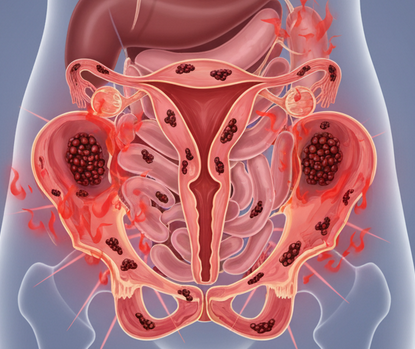Treatment Overview
Endometriosis is a chronic gynecological condition where tissue similar to the lining of the uterus grows outside the uterine cavity. This condition often causes severe pelvic pain, heavy menstrual bleeding, and infertility. Diagnosing endometriosis can be challenging because symptoms overlap with other pelvic disorders.
In Korea, endometriosis pelvic pain evaluation is a specialized field within gynecology that combines advanced diagnostic techniques with expert surgical and medical care. Korean clinics utilize state-of-the-art imaging technology, minimally invasive surgery, and comprehensive patient assessments to ensure accurate diagnosis and personalized treatment planning.
Korea’s healthcare system emphasizes precision and holistic care, making it a top destination for women seeking evaluation and treatment for endometriosis.
Purpose & Benefits
The primary purpose of endometriosis pelvic pain evaluation is to identify the presence, extent, and location of endometrial lesions and adhesions. This evaluation is vital to creating an effective treatment plan and preventing the progression of the disease.
Benefits of undergoing endometriosis evaluation in Korea include:
- Accurate diagnosis: Advanced imaging and laparoscopic procedures allow precise identification of lesions.
- Comprehensive care: Integration of diagnostic and treatment services in one setting.
- Minimally invasive options: Reduced recovery time and minimal scarring.
- Specialized expertise: Korean gynecologists often have extensive experience in managing complex pelvic pain cases.
By receiving care in Korea, patients benefit from advanced technology, highly skilled surgeons, and holistic approaches that integrate medical therapy and lifestyle recommendations.
Ideal Candidates
Endometriosis pelvic pain evaluation is recommended for women who:
- Experience chronic pelvic pain, particularly around menstruation.
- Suffer from painful intercourse or painful bowel movements during menstruation.
- Have heavy menstrual bleeding.
- Face unexplained infertility.
- Have inconclusive results from other pelvic examinations or imaging tests.
In Korea, gynecology clinics cater to both local and international patients, offering customized evaluations and multilingual support to ensure comfort and clarity during the process.
Possible Risks & Complications
While the evaluation process for endometriosis is generally safe, there are some risks:
- Discomfort during pelvic exams or imaging.
- Possible allergic reactions to contrast dyes used in imaging.
- Minor complications from laparoscopic procedures, such as infection or bleeding.
- Risks associated with anesthesia during surgical evaluation.
Korean medical centers minimize risks by using advanced technology, meticulous sterilization, and expert surgical protocols.
Techniques Used
Endometriosis pelvic pain evaluation in Korea employs a range of sophisticated diagnostic methods, including:
- Transvaginal Ultrasound (TVUS): High-resolution imaging to identify ovarian endometriomas and deep lesions.
- MRI Scanning: Advanced MRI protocols for detailed soft-tissue imaging.
- Diagnostic Laparoscopy: The gold standard for endometriosis diagnosis, allowing direct visualization and biopsy of lesions.
- 3D Laparoscopy and Robotic-Assisted Laparoscopy: Enhance accuracy and allow minimally invasive exploration.
Korean hospitals are at the forefront of laparoscopic innovation, offering single-incision and robotic-assisted approaches to improve patient outcomes and reduce recovery times.
Recovery & Aftercare
Recovery depends on the evaluation method:
- Non-invasive imaging: No downtime is required; normal activities can resume immediately.
- Laparoscopic evaluation: Patients may rest for a few days, with light activities resuming within a week. Full recovery usually occurs within two weeks.
Post-evaluation, Korean clinics provide:
- Detailed reports and recommendations.
- Pain management strategies.
- Hormonal or surgical treatment plans if needed.
- Nutritional and lifestyle advice to support long-term pelvic health.
Results & Longevity
Endometriosis evaluation in Korea offers highly reliable results, helping women identify underlying causes of pelvic pain and guide effective treatment. When combined with treatment during laparoscopy, symptoms often improve significantly. Early diagnosis and intervention can also prevent disease progression and improve fertility outcomes.
Results are usually permanent in terms of diagnosis, but managing endometriosis often requires ongoing treatment, which Korean clinics excel at providing.
Treatment Process in Korea
The process begins with a comprehensive consultation, including a review of medical history, physical examination, and symptom discussion. Imaging studies such as TVUS or MRI are conducted, followed by laparoscopic evaluation if needed.
Korea is renowned for its cutting-edge medical infrastructure and experienced gynecologists. Laparoscopic evaluations often incorporate robotic assistance and 3D visualization, providing superior diagnostic precision. This integration of advanced technology and expert care is why Korea is considered a top destination for endometriosis diagnosis and treatment.
Hospitals offer patient-centered services including multilingual support, concierge assistance, and quick scheduling for international patients, ensuring comfort and efficiency.
Cost Range
Costs vary depending on the complexity of the evaluation:
- Transvaginal ultrasound or MRI: ₩300,000–₩800,000 KRW ($230–$600 USD).
- Diagnostic laparoscopy: ₩2,000,000–₩5,000,000 KRW ($1,500–$3,800 USD).
- Robotic-assisted laparoscopy: ₩4,000,000–₩7,000,000 KRW ($3,000–$5,400 USD).
Many hospitals offer comprehensive packages that combine evaluation, imaging, laparoscopy, and follow-up care.
Popular Clinics in Korea
- Samsung Medical Center — Known for pioneering advanced laparoscopic evaluation techniques.
- Asan Medical Center — Comprehensive women’s health programs specializing in endometriosis.
- CHA Bundang Women’s Hospital — Expertise in minimally invasive gynecologic surgery.
- Severance Hospital, Yonsei University — Leader in robotic-assisted laparoscopy for pelvic pain.
- Kyung Hee University Medical Center — Integrates high-definition imaging and surgical evaluation.




